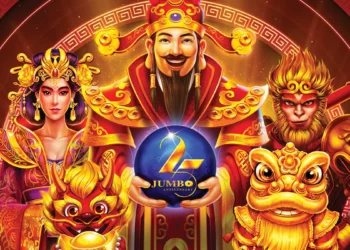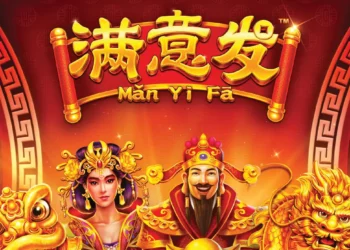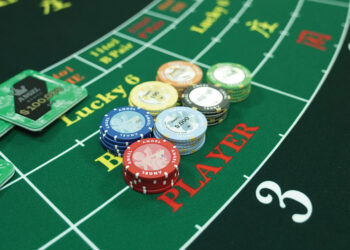An insider’s take on how casino junket agents recruit VIP players in China
Extending gambling credit to VIP players via sub-contracted third-party agents or sub agents, rather than direct from the casino to the player, is a central pillar of the Macau gaming industry. To a lesser extent it is also a feature of some other Asian land-based gambling jurisdictions including the Philippines and Cambodia. The online gambling industry in Asia also uses third party agents for the provision of credit and collection of debts.
The stakes are very high when it comes to recruiting high net worth casino players, because agents and sub agents—depending on their place in the junket system pecking order—may be paid either a recruitment fee or take as commission a percentage of the revenue “rolled” by the VIP player over the course of a month, six months or a year.
High Stakes
There are potentially a lot of VIP players to be recruited in China and a lot of commission to be won. According to “Global Wealth Report 2012,” published by Credit Suisse Research Institute, there are 964,000 US-dollar-denominated millionaires in China, and the number is expected to almost double to 1.9 million over the next five years, as the private sector continues its rapid pace of development. By 2017, Credit Suisse says the country will have added another $18 trillion in family wealth to surpass Japan as the second-wealthiest nation.
An obvious question is how do these third-party betting agents make contact with such potentially lucrative players in the first place, given that in China, a key market for Macau and casinos overseas, the advertising and marketing of gambling and gambling products is illegal?
The answer is many different ways— some of them through introduction or social networking and some of them through a growing system of VIP clubs.
“You can think of the junket network as the foot soldiers of a multi-level marketing strategy, rather like that you might find for a company selling consumer products such as Amway,” says a leading figure in the industry. “They have thousands and thousands of people in China. In each province and each city, they know all the important people. They know who’s who. They know who are the big factory owners, they know the business people, they know what business they’re in, and by knowing them they have a way to help these ‘customers’ to come to Macau and gamble.
“Because advertising of gambling is clearly prohibited in China, the junkets provide an important network,” he adds.
He also says the network of VIP clubs is growing within mainland China. They have many of the luxury facilities found on the VIP floors of Macau casinos—with the crucial difference that there are no gaming tables or machines, and no gambling is permitted.
Quality Service
“Some of the junkets have VIP clubs in China and these are very often multipurpose entertainment centers,” explains the insider. “Typically they have Internet facilities, they have massage facilities, and they have theatres. In China nowadays, these VIP clubs or entertainment centers are increasingly becoming a form of competition to the hotels.
“The hotels are in many cases getting less and less business because at the VIP clubs you can stay overnight—it’s much cheaper than a hotel. You can have a massage, you can get food, you can watch movies, you can get online—you can get everything you need. In every town in China, the VIP entertainment industry is booming.
“Many of the junkets actually have their service center at these clubs, as a way to acquire VIP customers. They issue them with membership cards, and they also have affiliates—organizations in different casinos in Macau or the Philippines or other Asian gaming jurisdictions.
Comprehensive Service
“Once these rich people in China become a member of one of these clubs, then transport can be organized so that they can easily come to Macau and gamble,” explains the insider.
Many junkets make a point of keeping detailed information on valued VIP customers—including their favorite food and what sort of music or films they like.
“It’s all about detail,” says the source. “Attention to detail covers transport, accommodation, catering, entertainment. So from acquiring the customer in China to sending them on a plane, everything is taken care of,” he adds.
Recruitment of the Chinese high roller is a wasted effort, though, without the ability to organize credit for their gambling trip.
“If you look at the Macau gaming revenue [last year of US$33.5 billion], clearly that’s a very big amount. But does it mean people are bringing millions in cash at a time into Macau? No. Most of that money does not come through the border,” says the source.
Oiling the Wheels
“The junket operators provide this key service of facilitating the flow of funds. A lot of times these big customers don’t have to bring in money at all. If they are on the ‘who’s who’ list in their locality they can get the credit. Sometimes they have to sign something, sometimes they may have to provide a symbolic deposit in the form of a check or provide some kind of asset collateral in China. Then they can come over to Macau without bringing any cash. In fact, I believe you can only take out of China at one time, at most, up to the foreign currency equivalent of US$5,000 and about 20,000 yuan ($1 = 6.27 yuan). That’s not very much money. For VIP players that’s not enough for even one game. I’ve seen these VIP guys gambling HK$10 million per night. They don’t have that in cash. They just use their credit line from China to get the money to play,” says the insider.
As everyone in Macau knows, for historical reasons the casinos themselves don’t act as credit providers.
“There can be problems with lack of information on players. In China, information on an individual’s credit worthiness isn’t available. So how can the casinos, or even the agents, know who they can provide credit to? Clearly they don’t—especially the Western casinos.
Knowledge Is Power
“The Western operators are very good at building a fancy casino, but they don’t know the customer. So they have to rely on the junkets. Some of the casinos have tried to go direct by having their own high roller program to some of their mass hall customers. But even when the casinos have their ‘own’ in-house VIP room as it were, they need those VIPs that can bring in money as a deposit,” explains the source.
This effectively rules out most potential VIP customers from mainland China.
“If the person says, ‘I’m rich but I can’t bring in any money to deposit’, the casino will say ‘That’s too bad. We want to serve you, but we can’t serve you if you can’t make a deposit.’ The casino may have to refer them to the junket anyway. The junket is able to take care of all these problems,” states the insider.
Paying Up
Just as VIP recruitment is pointless without credit collection, so the profitability of the whole system hinges on the ability of the agents to collect debts. As gambling debts are not recognized as a legally binding contract in China, such debts cannot be enforced via the courts there. It’s up to the agents to ensure players honor their credit.
“The casinos in Macau essentially extend the credit to the junket operators. The casinos don’t want to touch the credit or the debt collection issue directly,” says the source. “It would be difficult for them to go through their local gambling compliance procedures in the US or to follow the relevant anti money-laundering policies, so they want to outsource it to the junket operators.
“The junket operators really know their customers and have this very good network of local people in China. If you as a player lose money, you’ll be given a certain amount of time to pay up, and if you don’t, the local representatives are going to follow you wherever you go until you do. That’s much more effective than the casino operator trying to chase the debt itself, long distance,” says the insider.
“I’m not going to go into details of how exactly they collect, but they’re definitely more effective.”
Behind Closed Doors
VIP rooms are often mentioned in reports about gaming revenue in Macau, but most people don’t really know how they operate.
The VIP room is essentially a symbiotic and highly specialized marketing operation that exists within a host casino operation, providing a pipeline of high rolling players to the property. Although the table game operations within the rooms are run by the casino operator, all the other action inside is controlled by the VIP room operator (who is either a junket himself and brings his own players to the room, and/or allows one or more other junkets to operate in the room).
The VIP room operation recruits players, provides them credit to play with, then collects all gambling debts, and does so independently of the casino operator, who can disavow knowledge of any questionable methods used to transfer funds or collect debts.
VIP rooms are owned by the casino in which they reside. Independent VIP room operators can either lease out a room at a fixed rental, or be allowed to operate within a room by the casino if they can meet certain turnover targets.
The VIP room usually has its own junket cage or cashier counter, where a set or sets of chips unique to that room are used.
Although the casino operator provides the VIP room with dealers and security personnel, the other staff within the room are generally employed by the VIP room operators. These staff are mostly public relations (PR) hosts (who perform the function of ‘rolling’ chips between the players and the cage, exchanging cash chips for junket chips) and junket cashiers. You can easily tell the VIP room operator’s staff apart from the casino’s staff because the former are usually adorned in strikingly colorful two-piece suits. The PR hosts are predominantly young, good looking Chinese ladies, while the cage is mostly staffed by middle aged ladies. The VIP room managers will be older, and may be either male or female. The junket cage manager is usually a long-serving, loyal and trusted employee, who more often than not has a direct reporting line to the VIP room operator, independent to that of the room manager.
Above the managers sits the general manager or the owner’s representative, who is the primary liaison for all the different junket operators who bring their clients to that particular room.
By contrast, the VIP rooms in casinos in Las Vegas and Australia are a direct extension of the casinos themselves—i.e. all the staff and action within are directly controlled by the casino.
In Macau, VIP rooms deal almost exclusively with junket customers—players who wager sums of money in return for a percentage commission on their turnover. Western-style VIP rooms, on the other hand, are for customers whose play is large enough to qualify them for a higher level of service and comps.
The first and main differentiating feature of a Macau VIP room is the presence of a VIP cage. The main currency in the VIP cage is the junket chips. Depending on how many arrangements the VIP room operator may have, the VIP cage may deal with one of more sets of junket chips. The reason for this is to keep track of the players belonging to either different junket agents or playing under different commission schemes. A single VIP cage may sometimes have to deal with dozens of chip sets.
The other main difference between Macau VIP rooms and their Western equivalents is the prevalence of credit. In Australia, where some states ban casinos from offering credit, the casinos use a mechanism called the check cashing facility (CCF). VIP patrons are ‘permitted’ to cash their personal checks, and the casino will agree to hold those checks for a certain number of days before presenting them to the bank (usually around five working days). The patron can ‘buy’ or redeem their check back at any time prior to that deadline. Some casinos may even require the client to have played and lost some money before this facility is granted.
The credit arrangements within the Macau VIP rooms are more straightforward, where players are simply given a ‘marker,’ which commonly range from hundreds of thousands of Hong Kong dollars to the tens of millions, and at the very highest level, the hundreds of millions (tens of millions of US dollars).
Although commonly known as a credit marker, in some instances, the marker may not actually involve credit at all. It just means that the VIP room is issuing chips without any cash changing hands inside the room. In reality, the cash may have already been transferred to the VIP room operator’s offshore account, and all the VIP cage knows is that the VIP room operator has directed it to issue a certain value of chips to this particular patron.
In most cases, however, credit is involved, and the risk shared by both the VIP room operator and any junket agent involved. A common arrangement sees the junket agent put up a deposit, of say HK$2 million (US$250,000), while the VIP room operator in turn grants a maximum credit facility of HK$4 million to the agent’s players.
The Macau PR host’s main function is to “roll” the chips on behalf of the players. What this means is that they will take the cash chips won by the players to the VIP cage, and exchange them for junket chips, in order to earn the rolling commission. Beyond that, the typical PR host in Macau is a “Jill-of-alltrades,” having to perform the duties of a companion, host, waitress and assistant. Macau PR hosts take orders and serve F&B. They may also be required to physically record each bet as it is placed, as well as keep a real-time up-to-date record of the players’ (and house’s) win/loss performance.
Macau PR hosts will even do the scorekeeping for the baccarat outcomes, but most importantly, they are sometimes trained and permitted to advise the customers on which bet to place next.
To the Western-trained mind, gambling is all about statistics and odds, and baccarat is one of those games where the experienced floor manager will tell their underlings that there is no system that will affect the house advantage.
To the Chinese mind, baccarat is about patterns. Therefore, the PR hosts will help record the scores (even though the table may already have an electronic display screen), and should the customer venture a query as to what the next outcome would most probably be, the hosts will be ready with an answer, depending on the pattern they have charted. In the event the customer wins, the host will more than likely get a nice little tip, and should he lose, there are generally no repercussions for the host as it was the customer who asked in the first place.
Whereas the Western-style VIP room is usually a large, single room within a casino housing many tables, Macau casinos typically contain several separate smaller VIP rooms. The Western VIP room caters to a much broader range of customers, some of whom would be labeled as mass hall players in Macau if one was to only consider their average bet per hand.
The Western VIP room is also more like a club lounge than a serious gambling room, and customer loyalty is mostly rewarded with comps in the form of show and event tickets, rooms, meals, etc., rather than the all-important commission program used to incentivize VIP players in Macau.
While Macau PR hosts provide very individual and attentive service, appealing to the basic needs of ego and recognition, their Western counterparts are arguably more empowered and productive. The hosts in Western VIP rooms usually have to look after all the guests within the room whilst performing a wide range of functions, from manning the reception desk to making limousine bookings for customers. They rarely have the time or inclination to sit down and watch individual customers play each hand.
The ‘Dead Chip’ System
In the 1980s, at around the mid-point of his casino monopoly, Stanley Ho developed Macau’s unique VIP market structure— involving operators of private high-limit rooms and the rolling chip commission program. This junket-based play generates the bulk of casino revenue in Macau and most of the other legal casino jurisdictions in Asia. In 2011, it accounted for 73% of Macau’s total gaming gross of US$33.5 billion. The proportion looks set to decline a bit in 2012. But the dominance of VIP over the revenue mix continues despite the efforts of the Las Vegas-based operators, when they first came to Macau, to cut out the junket middlemen.
The first VIP rooms, located within Dr Ho’s casinos, took on some of the administrative burden of the gaming operations in exchange for a share of revenue. Meanwhile, junkets received a commission on the purchase of non-negotiable or “dead” chips by the players they brought in. The commission served not only as a reward to junkets for bringing their clients to a particular casino, but also for extending credit to those clients, since the bulk of VIP gamblers in Macau nowadays hail from mainland China and are unable to bring large sums of money out of the country to play with. In addition, gambling debts are not legally enforceable in China, so the junkets (or rather the sub-agents that feed them players) are also charged with the sometimes onerous task of collection.
Winning bets are paid in normal cashable chips which players can exchange for more dead chips to play. The more cash or cash equivalents the promoters induce their clients to exchange, or “roll,” in this manner, by providing credit, the more they earn, hence the term “rolling chip volume” (or “rolling chip turnover”) for denoting the churn on income statements and revenue reports.
During 2009, the Macau government became concerned about what some analysts had referred to as “irrational” competition in the Macau VIP market, with new casinos (chiefly Crown Macau, now Altira) buying new business by offering an eye-watering 1.35% commission on rolling chip sales. Faced with lobbying also from the other casino operators alarmed that their margins were being dangerously eroded by the commission price war, in August 2009, the government drafted a regulation to cap VIP rolling chip commission at 1.25%.
Since that time most of Macau’s casinos have moved away from commission-based payments to revenue-sharing—another way of dividing the spoils between casino and junket operator—in which the junkets partake in both the win and the losses. Payments under this system are not capped. (The Macau government looked at doing it, but decided it would be impractical.) The split ranges currently between 40 and 55%.
The blended average house advantage on baccarat is around 1.3% (with house advantage on cash play determined by dividing house win by handle). The win rate using rolling chips is calculated according to a slightly different metric: house win divided by dead chip sales (sales used as a proxy for turnover).
Since the “Player” and “Banker” bets on baccarat are close enough to even money wagers, each dead chip has an expected life of just under two bets. Win rate is a little more than twice the house advantage. Although casino operators employ varying win rate assumptions on VIP baccarat, a generally accepted figure is about 2.75%. However, the effects of this narrow margin are ameliorated by sheer volume of play. Operators rake in their enormous profits even after the tax man and the promoters and junket operators take their shares because the roll in dead chips is enormous. Turnover last year exceeded US$773 billion, translating into roughly US$26 billion in gaming revenue. That was more than four times larger than the gross gaming revenue on the Las Vegas Strip.
But even with the casinos sharing revenue with their outside promoters, the house hold volatility inherent in baccarat can make it a tough—and risky—business for the casino. Gary Loveman, chief executive of Caesar’s Entertainment, was once quoted as saying he didn’t like high-stakes baccarat in his business mix because one lucky whale could potentially wipe out in a single session a significant portion of a casino’s quarterly profit.






























